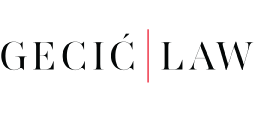On July 10, 2023, the Council of the European Union (“Council”) officially adopted the Regulation of the European Parliament and of the Council concerning batteries and waste batteries (“Regulation”). This Regulation covers the entire battery life cycle, from production to reuse and recycling, aiming explicitly at safety, sustainability, and enhancing competitiveness.
The Regulation applies to various battery types, including waste portable batteries, electric vehicle batteries, industrial batteries, and starting, lighting, and ignition (“SLI“) batteries primarily found in vehicles and machinery. It also extends to batteries designed for lightweight modes of transport, such as electric bikes and e-scooters.
The adaptation process for this Regulation commenced in December 2020 when the European Commission proposed it. The proposal aimed to improve the operation of the domestic market, promote the concept of a circular economy, and mitigate the environmental and social impacts across every phase of a battery’s lifespan. This initiative links with the European Green Deal, the Circular Economy Action Plan, and the New Industrial Strategy.
The Regulation outlines several key measures. First, it actively encourages the recycling and proper disposal of portable batteries. This comprehensive framework establishes ambitious targets for battery collection rates, emphasizes the recovery of valuable materials like lithium, and mandates minimum levels of recycled content for various battery types. The Regulation aims to foster a more sustainable approach to battery production and management by implementing these measures. The Regulation establishes specific targets for battery producers to ensure the collection of waste portable batteries: at least 63% by the end of 2027, increasing to 73% by the end of 2030. It also introduces specific collection goals for waste batteries used in lightweight transportation, requiring a minimum collection of 51% by the end of 2028, and an increased target of 61% by the end of 2031.
The Regulation recognizes lithium’s importance in battery production, setting targets for its recovery from waste batteries: an initial 50% recovery rate by the end of 2027, rising to 80% by the end of 2031. These targets are adjustable to accommodate market and technological advancements, as well as the availability of lithium.
The Regulation introduces mandatory minimum levels of recycled content for different battery categories to promote a circular economy and reduce reliance on virgin materials. Industrial, SLI and Electric Vehicle batteries are subject to these requirements. The minimum recycled content levels are initially set as follows: 16% for cobalt, 85% for lead, 6% for lithium, and 6% for nickel. Furthermore, batteries are required to provide documentation attesting to their recycled content.
In addition, electric vehicle batteries, lightweight modes of transportation, and rechargeable industrial batteries above 2kWh capacity must now have mandatory carbon footprint declarations and labeling. The design of portable batteries in appliances should also be simplified to facilitate easy removal and replacement by consumers.
The Regulation also introduces digital battery passports and QR codes, which will provide consumers with information regarding batteries’ main characteristics, including their capacity and the amount of certain hazardous substances present. In this way consumers are enabled to make informed decisions when buying and discarding batteries.
The Regulation introduces strict due diligence regulations for operators, requiring them to verify the origin of raw materials utilized in batteries made available in the market. It is important to note that the Regulation includes a provision that exempts small and medium-sized enterprises (SMEs) from complying with the due diligence rules.
The Council’s vote marks the conclusion of the adoption process. The Regulation will now be signed by the Council and the European Parliament, followed by its publication in the EU’s Official Journal. It is set to take effect 20 days after publication. Our ESG team will follow the impact of the Regulation on Serbia and the region – so stay tuned.
By Nemanja Sladakovic, Senior Associate, and Milica Novakovic, Associate, Gecic Law


